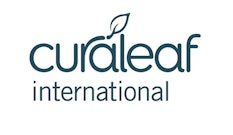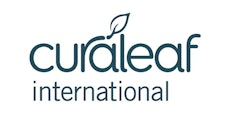
Thailand had the opportunity to set the bar on cannabis reform for its Southeast Asia neighbors, but the nation of 72 million is now punting its three-year trial run on decriminalization.
Public Health Minister Somsak Thepsutin signed an order on June 23 banning Thailand’s 10,000 to 18,000 licensed stores from selling cannabis to those without a medical prescription, The Associated Press reported. Selling cannabis in violation of the order is punishable by up to one year in jail and a 20,000-baht (roughly $614) fine.
Thepsutin, whose order went into effect June 26, said the government intends to draft new regulations to reclassify cannabis as a narcotic on the ministry’s list of controlled drugs and require dispensaries to have doctors on-site to perform compliant medical sales, the Bangkok Post reported. Sales would be limited to a 30-day supply.
Thailand legalized medical cannabis in 2018, before becoming the first country in Asia to decriminalize adult-use cannabis in January 2022.
At the time, former Public Health Minister Anutin Charnvirakul announced that Thailand’s Narcotics Control Board approved dropping cannabis from the country’s list of controlled drugs, setting up the de facto decriminalization of cannabis in the country. Later in 2022, Thailand’s government even implemented plans to provide 1 million cannabis plants to its citizens to encourage home cultivation.
Thailand’s 2022 cannabis decriminalization came amid a broader effort to amend the country’s drug laws to reduce its prison population.
Southeast Asia, in particular, has some of the world’s strictest drug laws and penalties. In 2023, Singapore hanged a 46-year-old man in connection with the trafficking of roughly 1 kilogram (2.2 pounds) of cannabis. Tangaraju Suppiah was sentenced to death in 2018 after a judge determined he was coordinating with traffickers attempting to smuggle cannabis into the country, Al Jazeera reported.
Human Rights Watch Deputy Asia Director Phil Robertson claimed Suppiah never actually touched the cannabis in question, was questioned without a lawyer, and denied an interpreter, as reported by multiple news outlets.
A common argument made by cannabis legalization advocates in the U.S. is that no state has reversed course after legalizing adult-use cannabis. State-sanctioned programs in the U.S. have established regulatory frameworks focused on seed-to-sale tracking and compliant testing that prioritize public health and safety.
In Thailand, the Bhumjaithai Party was the driving force behind the country’s 2022 decriminalization effort. Although the Bhumjaithai Party was expected to spearhead legislation to clarify the legal status of cannabis afterward, the conservative populist Pheu Thai Party took over majority leadership in the government’s ruling coalition in 2023.
In the three years since decriminalization, the Thai government has faced public backlash over an underregulated system and concerns related to youth access and addiction rates, ABC Australia reported.
Furthermore, the Bhumjaithai Party left the coalition to join the opposition party earlier this month over a leaked phone call indicating Prime Minister Paetongtarn Shinawatra had mishandled diplomacy with Cambodia, which increased cross-border tensions, and over a cabinet seat dispute.
In turn, the Pheu Thai Party doubled down this week on its commitment to recriminalize cannabis.
Rattapon Sanrak, who owns a dispensary in Bangkok’s Khaosan District, told the Bangkok Post that the new rules under Thepsutin’s order will increase compliance costs, push licensed dispensaries out of business and allow the unlicensed market to thrive.
“These moves are political revenge, but it’s the public who’ll pay,” Sanrak said. “The majority of farms in the country are not yet certified by the government. And the products that don’t comply with the regulations that are in the pipeline will have nowhere to go but underground.”
Although licensed shops can continue to operate under the new order, they are required to obtain their medical cannabis products solely from farms that are approved by the Department of Thai Traditional and Alternative Medicine.
Thai cannabis advocates with the Writing Thailand’s Cannabis Future Network plan to hold a rally on July 7 to protest the Public Health Ministry’s order.



























